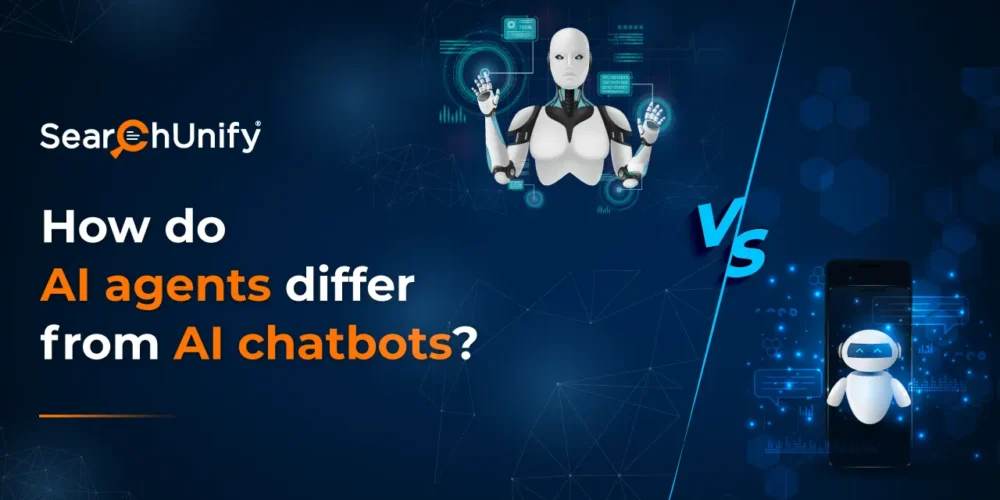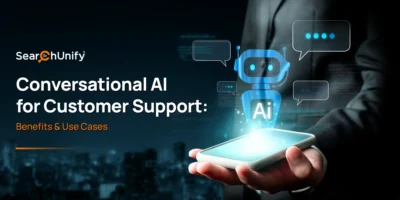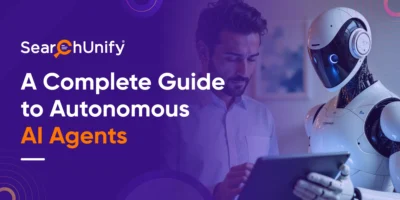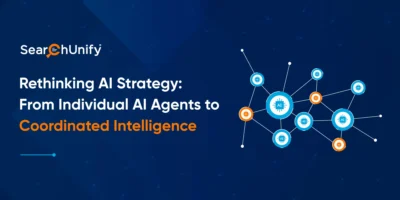
AI has been in action for a while now, and AI chatbots have remained an important tool for customer service and support. But with the advent of Agentic AI, the picture has changed completely. Now, AI agents are transforming business operations and executing tasks to achieve specific goals.
At first, both seem to share the same purpose, but in actuality, they operate in different ways. Understanding this difference is critical for businesses to automate efficiently.
In this article, we are going to unravel the differences between AI chatbots and AI agents to provide a clearer picture.
What are AI Chatbots?
AI chatbots are software applications that simulate human conversation with the help of technology like natural language processing to respond to customer queries. They are deployed on web applications or websites to handle basic customer queries, guide users through preset workflows, and more.
Chatbots fall under two categories:
- Traditional or rule-based chatbots: These chatbots operate under pre pre-defined set of responses, making them fast but rigid. These sort of chatbots used to leave customers frustrated.
- AI chatbots: Leveraging technologies like natural language processing (NLP) and machine learning, they can understand the intent behind the user’s search query. This helps them to respond to customer queries naturally.
What are AI Agents?
AI agents are an advanced form of artificial intelligence capable of understanding goals, making decisions, and taking actions to fulfill those goals. These agents require little to no human intervention and are designed to work independently or collaboratively with humans and systems to complete multi-step tasks.
These agents leverage technologies like machine learning models, deep learning, and reinforcement learning to process and analyze the data extracted from multiple sources and undergo action accordingly.
While AI chatbots focus on conversation, AI agents take it further and focus on outcomes.
For instance, an AI agent in a support setting could:
- Identify an urgent customer ticket
- Triage it to the appropriate department
- Gather contextual information from CRM or knowledge bases
- Propose resolutions or even act on them autonomously
What is the difference between AI agents and AI chatbots?
| Feature | AI Chatbots | AI Agents |
|---|---|---|
| Primary Function | Respond to user input | Achieve a defined goal |
| Autonomy | Low – reactive | High – proactive |
| Task Complexity | Simple (FAQs, forms) | Complex (multi-step, cross-platform) |
| Context Awareness | Limited or session-based | Persistent, can recall past interactions |
| Learning Ability | Minimal (static training) | Can adapt based on feedback/data |
| Integration Depth | Often shallow | Deep integrations with multiple tools |
| Examples | Customer support chat widget | Autonomous lead qualification agent |
Will AI Agents replace AI Chatbots in the future?
AI agents and chatbots address different layers of business needs. Chatbots are efficient for structured interactions, while AI agents are suited for adaptive, high-value tasks.
We’ll likely see hybrid AI systems where:
- A chatbot handles initial queries and basic routing.
- An AI agent takes over when tasks require reasoning, memory, or integration.
In fact, many businesses are already adopting this layered approach. By combining the scalability of chatbots with the intelligence of AI agents, they’re offering smoother, faster, and more personalized experiences.
Final Thoughts
As the AI landscape matures, the shift from chatbots to AI agents is not just a technical evolution; it’s a strategic one. Businesses that previously relied on simple conversational flows now need systems that think, decide, and act.
To conclude with:
- AI chatbots are great for front-line automation and routine interactions.
- AI agents offer depth, decision-making, and task execution capabilities.
- The best AI strategies will leverage both, depending on the user journey and complexity of tasks.
For B2B organizations, this means the future isn’t just about faster responses—it’s about intelligent action. And AI agents are leading that charge.
Are you ready to invest in these AI Agents?













